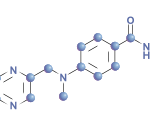 EULAR 2023—In a randomized, phase 2 clinical trial, more patients who received the investigational rheumatoid arthritis (RA) agent TLL-018 achieved 50% improvement in symptoms from baseline, measured by the ACR50 criteria, after 12 weeks of treatment than patients who received tofacitinib. Xiaong Zeng, MD, Department of Rheumatology and Clinical Immunology, Peking Union Medical College Hospital & Chinese Academy of Medical Sciences, Key Laboratory of Rheumatology and Clinical Immunology, Ministry of Education, Beijing, China, presented these data during EULAR 2023, Milan, Italy, May 31–June 3.1
EULAR 2023—In a randomized, phase 2 clinical trial, more patients who received the investigational rheumatoid arthritis (RA) agent TLL-018 achieved 50% improvement in symptoms from baseline, measured by the ACR50 criteria, after 12 weeks of treatment than patients who received tofacitinib. Xiaong Zeng, MD, Department of Rheumatology and Clinical Immunology, Peking Union Medical College Hospital & Chinese Academy of Medical Sciences, Key Laboratory of Rheumatology and Clinical Immunology, Ministry of Education, Beijing, China, presented these data during EULAR 2023, Milan, Italy, May 31–June 3.1
Background
The study by Zeng et al. compared the efficacy of tofacitinib (Xeljanz) and TLL-018 in patients with active, moderate to severe RA who were intolerant to methotrexate and for whom methotrexate had proved inadequate.
Tofacitinib is a Janus kinase (JAK) inhibitor targeting mostly JAK-1, 2 and 3. TLL-018 is a highly selective, dual JAK1/tyrosine kinase (TYK) 2 inhibitor. Interleukin (IL) 12 and IL-23 are mediated by TYK.2 Therefore, a therapeutic agent that inhibits both JAK and TYK-2 may have the potential to be a more efficacious treatment than a single-mechanism agent.
Methods
Patients with RA were randomized in a 1:1:1:1 ratio to receive 10 mg, 20 mg or 30 mg of oral TLL-018 twice daily or 5 mg of oral tofacitinib twice daily. At week 12, patients were evaluated according to ACR50 criteria.
The study’s primary efficacy end point was the proportion of patients who achieved an ACR50 response by week 12. An ACR50 response is defined as a 50% improvement in tender and swollen joint counts and in three of the five additional criteria:
- Patient global assessment of disease activity;
- Physician global assessment of disease activity;
- Patient assessment of pain;
- Health Assessment Questionnaire; and
- C-reactive protein or erythrocyte sedimentation rate.
Patients who achieved an ACR50 response at week 12 continued the same treatment and dose through week 24.
Patients who did not achieve an ACR50 response at week 12 changed treatments. Patients who received tofacitinib and 10 mg of TLL-018 twice daily were switched to 20 mg of TLL-018 twice daily. Patients who received 20 mg of TLL-018 twice daily were switched to 30 mg of TLL-018 twice daily. Patients who received 30 mg of TLL-018 twice daily remained on 30 mg of TLL-018 twice daily.
The study’s secondary end points included the proportion of patients who achieved:
- A Disease Activity Score-28 for RA with CRP (DAS28-CRP) score of <2.6;
- An ACR20 and/or ACR70 response at all scheduled time points;
- An ACR50 response at scheduled time points, excluding week 12; and
- A Clinical Disease Activity Index (CDAI) for RA and other parameters at week 12.
All patients stopped treatment at week 24 and were followed for an additional four weeks. Safety was also assessed.
Results
In the study, a total of 101 patients were randomized; approximately 50% had previously used biologic disease-modifying anti-rheumatic drugs (bDMARDs), and approximately 30% of patients had previously used JAK inhibitors. According to the researchers, patient demographics and baseline disease characteristics were similar across treatment groups.
At week 12, 48.0% of patients in the 10 mg TLL-018 treatment group achieved an ACR50 response (95%; confidence interval [CI]: 28.42–67.58), 65.4% of patients in the 20 mg TLL-018 treatment group achieved an ACR50 response (95%; CI: 47.10–83.67) and 72.0% patients in the 30 mg TLL-018 treatment group achieved an ACR50 response (95%; CI: 54.40–89.60). In the group that received 5 mg of tofacitinib twice daily, 41.7% of patients achieved an ACR50 response (95%; CI: 21.94–61.39). The response rates of both the 20 mg TLL-018 BID treatment group and 30 mg TLL-018 treatment group were statistically superior to the tofacitinib treatment group (P<0.05).
The proportions of patients achieving clinical remission (i.e., a DAS28-CRP score of <2.6) at week 12 were 39.1% for the 10 mg TLL-018 treatment group, 34.8% for the 20 mg TLL-018 treatment group and 54.5% for the 30 mg TLL-018 treatment group compared with only 17.4% of patients in the tofacitinib treatment group.
bDMARDs: Both the 20 mg and 30 mg doses of TLL-018 demonstrated higher efficacy than tofacitinib in patients who had prior bDMARD use. These patients achieved ACR50 rates of greater than 66%.
Patients on tofacitinib who did not achieve an ACR50 response at week 12 and were switched to 20 mg of TLL-018 twice daily experienced subsequent improved responses (not reported). Specific secondary end point results were not reported.
In patients who received either treatment, the most frequently reported treatment-emergent adverse events were hyperlipidemia and respiratory infection. One case of malignancy was reported in a patient who received tofacitinib. No deaths, venous thromboembolism or major adverse cardiovascular events were observed during the study.
Conclusion
At 20 mg and 30 mg twice-daily doses, TLL-018 demonstrated superior efficacy over 5 mg of tofacitinib twice daily for treating patients with RA. These results suggest that inhibiting TYK-2 in addition to JAK-1 may benefit this patient population.
TLL-018 was well tolerated with no unexpected safety concerns. TLL-018 may prove beneficial in further studies in patients with RA who are difficult to treat. Phase 3 studies are planned in China, but not yet in the U.S. for this indication.3
Michele B. Kaufman, PharmD, BCGP, is a freelance medical writer based in New York City and a pharmacist at New York Presbyterian Lower Manhattan Hospital.
References
- Zeng X, Wu C, Hu J, et al. Head-to-head comparison of TLL-018 and tofacitinib in patients with active rheumatoid arthritis: Interim results from a phase 2a study (abs LB0001). Ann Rheum Dis. 2023;82(suppl 1):200.
- Schlapbach C, Conrad C. TYK-ing all the boxes in psoriasis. J Allergy Clin Immunol. 2022 Jun;149(6):1936–1939.
- News release: Highlightll Pharmaceutical TLL-018 achieved breakthrough results in a phase ii trial for rheumatoid arthritis. Hangzhou Highlightll Pharmaceutical Co. Ltd. 2023 Jan 23.


